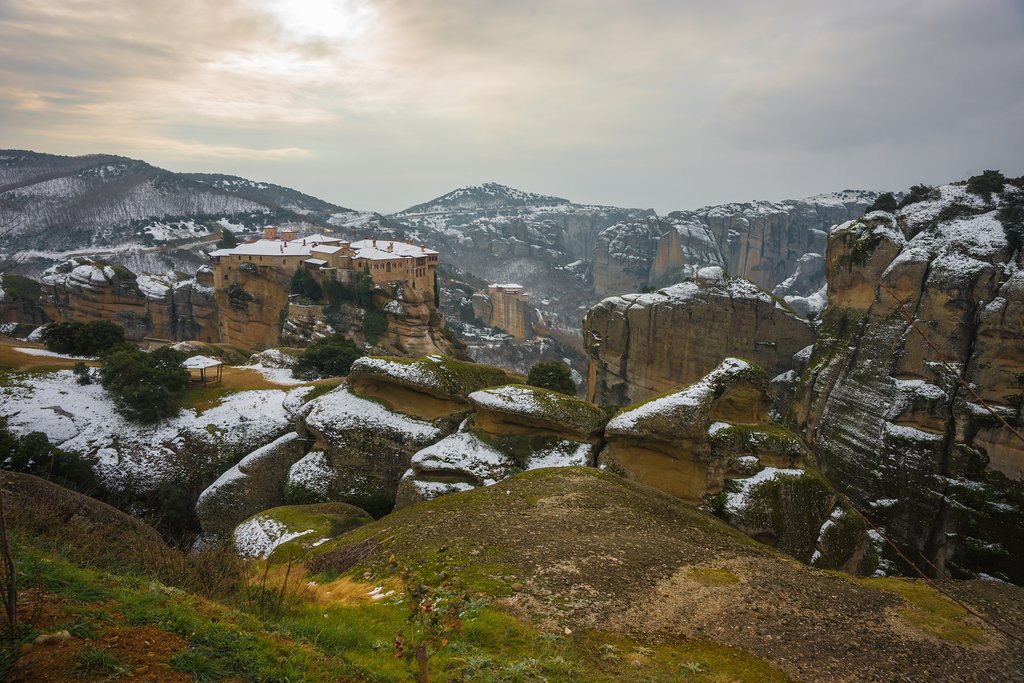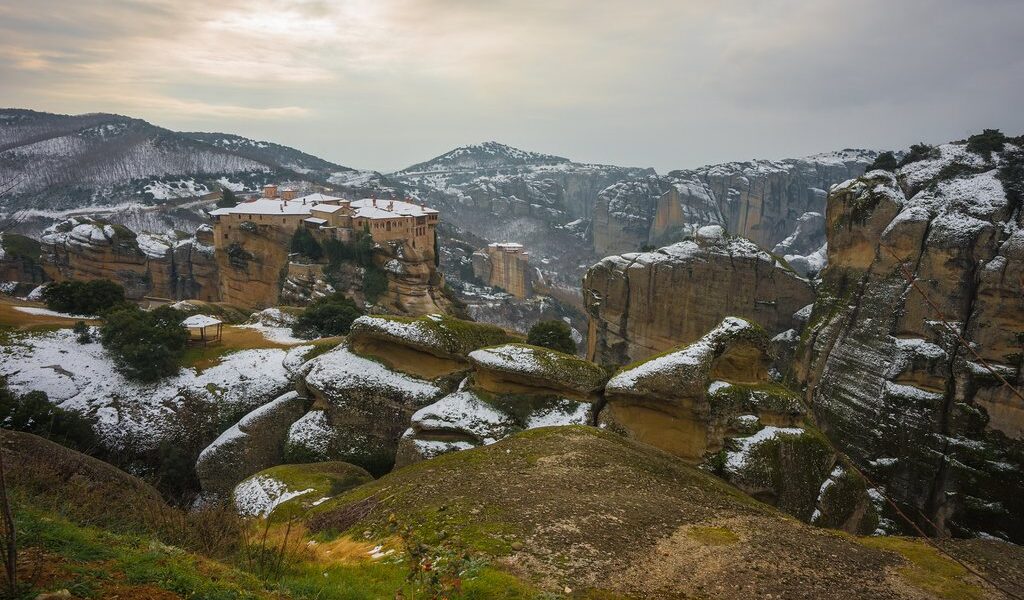
If you’ve already “done” Greece in summer, take advantage of bargain prices in the country’s low season. The good news? You’ll feel like you have Greece to yourself. The bad? Often undesirable weather, with gray skies and frequent rain—although temperatures are generally mild and rare sunny days can be crystal clear.
## Exploring Greece in January: A Winter Escape
Greece in January offers a unique travel experience, far removed from the bustling summer crowds. While the weather may not be ideal for sunbathing, the country reveals a different kind of beauty, offering a chance to connect with its culture and history in a more intimate setting. Let’s delve into what you can expect when visiting Greece during this time of year.
**Weather Considerations**
The winter months in Greece, including January, bring cooler temperatures. However, the severity of the cold varies depending on the region. Generally, winters are considered fairly mild, especially when compared to many other European destinations. The exception to this milder weather is found in the mountainous regions, where snowfall becomes a common occurrence.
In Athens, average temperatures hover around 55 degrees Fahrenheit. Nightly lows are generally cool, but rarely dip down to freezing. The Greek Islands typically enjoy slightly warmer temperatures, usually a degree or two higher than those in Athens. While January is considered the coldest month in Greece, travelers arriving from colder climates might find the weather surprisingly pleasant, even balmy on some days.
It’s important to note that the skies in Athens are often overcast during this time, with rainfall occurring approximately one day in three. If you’re planning a trip to the Greek Islands, it’s essential to remember that despite being in the Mediterranean, the seas can be rough and the weather can be damp, windy, and even cold. Therefore, packing appropriate cold-weather clothing, including windproof raingear, is highly recommended.
**Crowds and Costs: An Advantageous Time to Visit**
One of the biggest advantages of visiting Greece in January is the absence of the overwhelming summer crowds. With most travelers opting to stay home during the winter months, you’ll find that Greece feels much more personal and authentic. Airfares and hotel rates are at their lowest during this off-season, making it a budget-friendly time to explore the country.
However, it’s important to be aware that fewer travel options are available during the winter. Many charter airlines suspend their operations, regular flight schedules are reduced, and numerous hotels, restaurants, and bars close for the season. Despite these limitations, the establishments that remain open offer prompt and attentive service, allowing you to enjoy a more personalized experience.
**Where to Explore: Discovering Greece’s Treasures**
January presents an excellent opportunity to explore Athens without the overwhelming crowds that characterize the summer months. The Acropolis, a UNESCO World Heritage site and one of the most iconic landmarks in the world, and other key historical sites are much more accessible, allowing for a more immersive and contemplative experience.
Many visitors from northern climates still venture to the Greek Islands during January, hoping to bask in the winter sun. While clear skies are more common than not, it’s not always a guarantee. Partygoers should take note that many clubs and bars close during the mid-winter months, creating a tranquil atmosphere free from the usual loud music. It’s advisable to focus on the main islands, such as Crete and Santorini, which offer a wider selection of open bars and restaurants and possess an enchanting charm at any time of year.
**Activities to Enjoy: Embracing Culture and History**
January is an ideal time to focus on museums and cultural visits. Greece boasts a rich history and an abundance of museums showcasing its artistic and archaeological treasures. Taking a dip in the Mediterranean Sea is generally not recommended in January, unless you’re fond of a chilly polar bear plunge!
For those who enjoy winter sports, Parnassus Ski Resort offers a great option for a day or two on the slopes. While not as famous as Aspen or Davos, Parnassus provides a fun and accessible skiing experience. The nearby town of Arachova boasts active bars and clubs, adding to the après-ski atmosphere.
Photography enthusiasts will appreciate the softer colors and diffused light during the winter months, offering a welcome contrast to the glaring summer sunlight. Finally, January is a perfect time to engage with the local Greeks, learn about their culture, and experience their warm hospitality.
**January Events: Festive Celebrations**
* **Feast of Saint Basil’s/New Year’s Day:** This significant celebration marks Greece’s equivalent to Christmas Day. The Feast of St. Basil (Ayios Vassilios) is a time for gift-giving, festive meals, card games, and other customs believed to bring good luck for the upcoming year. Athens and many other cities and towns host midnight fireworks displays to usher in the New Year.
* **Epiphany:** Celebrated on January 6th, Epiphany (Theofania) celebrations take place across Greece. The local Orthodox priest leads a procession through town, visiting homes to offer blessings. The procession typically concludes at a body of water, where the priest tosses a cross into the water. Swimmers then dive in, vying to retrieve the cross in the belief that it will bring them good luck. Piraeus, Athens’ port city, hosts the largest “Blessing of the Waters” celebration.
* **Patras Carnival:** Considered Greece’s largest festival, the Patras Carnival transforms the city into a vibrant spectacle lasting for several weeks. The festivities include parade floats, boules (“transvestite” masquerades), pantomimes, and endless parties.
**Suggested Itineraries: Experiencing the Best of Greece**
* **Highlights of Athens – 5 Days:** This itinerary focuses on showcasing the best of the capital city, from exploring the ancient Acropolis to experiencing the vibrant local food markets.
* **Authentic Athens & Historical Greece:** This eight-day journey delves into both ancient and modern Athens, while also including visits to significant historical sites like Delphi and Mycenae.
* **Cultural Cyclades:** Perfectly suited for a winter escape, this 12-day itinerary takes you to four different islands, immersing you in classical history and local culture.
In conclusion, while Greece in January may present a different travel experience compared to the summer months, it offers unique advantages such as fewer crowds, lower costs, and a chance to connect with the country’s culture and history on a deeper level. With careful planning and appropriate packing, a visit to Greece in January can be a rewarding and memorable adventure.
B-1049

